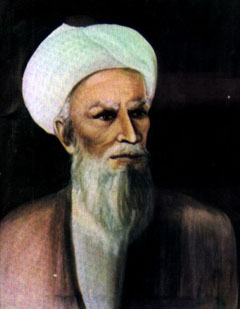No to IFC, Yes to Dialogue
IFC is not meant for Interfaith Dialogue
ABIM views with grave concern the call made by the Opposition Leader Mr. Lim Kit Siang at the Parliament on Tuesday urging the government to set up an Interfaith Council. Although the majority of Muslims objected to the earlier proposal to form an Interfaith Commission, a fact that is well known to Mr. Lim himself, he argued that sensitive inter-religious issues will be resolved with the formation of such a council. His view on this matter implies that the IFC is the only means to promote inter-faith dialogue and that the Muslims’ objection to its formation lacks valid justification.
Our objection to the formation of such a body, as well as the reasons why we objected, was well documented. However, constant calls made by the non-Muslim politicians and religious leaders for the formation of such a body on the ground that it will promote inter-religious harmony through dialogue and protect the constitutional rights of the non-Muslims only serve to cast Muslim organizations opposing to such a move in bad light. We therefore reiterate our objections on the following grounds:
• IFC is not a mechanism for Interfaith Dialogue. It is meant to be an institution that promotes a one sided view about religious freedom, which its proponents claimed to be based on “prescribed international norms”, without rooms for disagreements.
• IFC started on a wrong footing. Our representatives who sat on the multi-faith committee which was set up to discuss the formation of an inter-religious council in early 2001 was appalled by the incessant calls by the proponents of the IFC, most of them were members of the Human Rights Committee of the Bar Council, for a review of the constitutional provisions which restrain a Muslim from converting to other religions. Being insensitive to the reservations from the representatives of Muslim organizations, they presented cases on the application for apostasy, which they lost, and urged others to support their call. This confirmed our view that they were not there to hold dialogues but to promote and impose upon others their own view about freedom of religion, especially the right of a Muslim to apostatize.
• IFC is set to interfere with matters internal to one’s religion. It is a seemingly “inter-faith” body with a strong urge to criticize, condemn and make unsolicited recommendations on intra-faith issues beyond juristic competence of its members. This is glaringly evident by the actions of its proponents, including the non-Muslims, who continuously condemned basic tenets of Islam for which they have no competence to do so. Allowing such condemnation to take root in an “inter-faith” body will only do more harm than good in our efforts to promote religious harmony.
• There had been deliberate attempts by the proponents of the IFC to selectively put forth constitutional provisions which seem to be supportive of their view about the unbridled freedom of religion and discard others which are not in their favor in order to substantiate their arguments. And yet, they claimed to uphold the Federal Constitution. In the National Conference Toward the Formation of the Interfaith Commission of Malaysia organized by the Bar Council and a host of other organizations in February 2005, there were heated arguments on why Article 11(4) of the Federal Constitution, which limits the propagation of religious beliefs among those professing the religion of Islam, was not mentioned at all in the draft Bill for the proposed Commission. Despite legitimate claims that the organizers should take Article 11(4) into consideration in drafting the Bill, the general atmosphere of the debate during the conference had been to condemn the Clause 4 of Article 11 for restraining one’s right to unbridled freedom of religion. Although the constitutionality of the draft Bill was seriously questioned, it was finally adopted by the Conference. Now we ask, which Constitution that the proponents of the IFC, including Mr. Lim Kit Siang, are adamant to uphold? To us, this is just an example of “selective constitutionalism” adopted by the proponents of the IFC as a strategy to promote sectional interests.
We call on Mr. Lim Kit Siang to stop making assertion that the IFC is the only mechanism for interfaith dialogue and hold others at ransom to accept such assertion. We also call on the Opposition Leader to take into consideration the views of the majority of the Muslims who are against such a proposal when making statements on the IFC and other related issues. We really want to see that Mr. Lim and his Democratic Action Party truly promote the interests of all Malaysians regardless of race and religion. Reading Mr. Lim’s statement in the Parliament on Tuesday, as well as that of his other colleagues participating in the parliamentary debate on that day, we could not but conclude that the Opposition Leader and his party had not made much progress in this regard.
We believe that meaningful interfaith dialogue could only be held when all parties to the dialogue have sincere intention to promote understanding and harmony among different religious communities. It should not be an avenue for imposition of one’s view over the others or an opportunity to demonize other religions.
KHAIRUL ARIFIN MOHD MUNIR
Secretary General
Muslim Youth Movement of Malaysia (ABIM)













0 thoughts from optimists:
Post a Comment